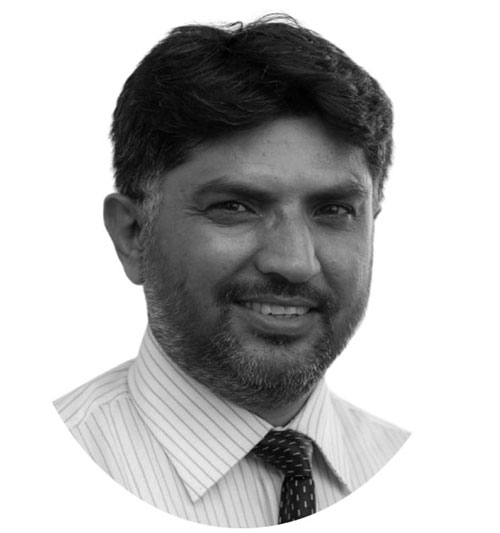Governance issues in universities
THE Higher Education Commission (HEC) has in the recent past, been portrayed as a failing organization for not bringing desired reforms in higher education sector.
It is to be noted that right from its establishment, the main objective of HEC is to become facilitating body for universities and degree awarding institutions. The universities are actual executors of the government directives and HEC policies.
They are expected to provide qualified human resources, startups with the potential of commercialization and work as a solution provider to the industry as well as to the society.
HEC is governed through the senior educationists and officers as members who belong to different federal and provincial organizations.
They have experience in the field of Education and welfare. Since its establishment, HEC has taken different initiatives for human resource development, financial assistance for research projects, development of curriculum for various disciplines, establishment of quality assurance mechanism at internal and external levels in universities, capacity building measures for the stakeholders of universities and development of infrastructure for teaching and research.
It is unfortunate that some of the major public sector universities resisted the initiatives envisioned by the Commission and relied on their stereo-type approaches for functioning.
On the other side, some universities have half-heartedly accepted some recommendations forwarded by HEC and due to several reasons, they did not comply with all guidelines circulated from time to time.
The third category is of those universities that have complied with HEC guidelines but are considering HEC to be an organization with an old mindset. All these universities have a distinct set of characteristics in terms of governance.
Faculty members as per budget approved positions are not appointed and if, lucky, they are in majority, then administrative posts are also given to them as an additional charge.
This results in bad governance because teachers are not trained to be professional administrators.
In addition to that teaching and research are primary and full-time jobs for which they are hired.
The financial experts are required for the proper fiscal management of the university resources.
The experts have the knowledge and experience to run institutions stably but, unfortunately, every head of the organization feels comfortable if Director Finance is the person whom he can trust.
Resultantly, every Vice-Chancellor mostly replaces existing with his dear or near one.
The almost same practice is carried out for the position of Registrar and the Controller of Examination.
University is a place where different professionals work together for achieving the mission and vision of the institution.
Unfortunately, sometimes head of organizations are appointed through political affiliations, and they do not meet the professional wisdom.
The short-term interest of the top management damages the long-term objectives of the institution.
Ad-hoc approaches, favouritism and nepotism lead to the bad financial state of the universities as well as affects smooth teaching and research environment.
Compromising merit for the appointment of teachers and researchers affects the organization’s overall performance as non-qualified people cannot produce desired results in terms of quality teaching and quality research.
Due to compulsion for publishing papers, they tend to do plagiarism which is detected at a later stage and gives a bad name to the institution as well as to the individual.
Non-availability of equal opportunities and less professional development opportunities for teachers and administrative staff creates rifts among the ranks.
Administrative Staff feels oppressed and underpaid whereas teachers are considered as inefficient but highly paid.
There is a limited social and professional interaction between the two main arteries of the organizations which are required to supplement each other but they try to waste energies in negative activities.
Teachers in some cases will try to find corruption and malpractices in administrative staff’s activities whereas administrative officials will blackmail faculty members by finding their weaknesses and in some cases will give them financial loss or loss of seniority etc.
The use of students for protesting each other is another factor of bad governance in the universities.
Both teachers and administration enjoy such episodes of defaming and bad repute to each other. Very few sincere will try to mend differences and keep them as a team.
It is also observed that universities have very weak bonding with social organizations, NGOs, and other community organizations.
Due to several reasons, campuses are not open to all for observing their teaching, research and co-curricular activities.
Even sports events are not open to the school children who may get inspired from their local talent for developing themselves as good sportsmen.
The lack of accountability mechanism is one of the major factors for such deterioration and a sense of responsibility is another.
Everyone i.e. Teachers, University Administration is asking for their rights but at the same time, everyone has forgotten their responsibilities.
The energies of all stakeholders can be used in a positive way for developing quality teaching and developing a quality research culture. The role of leadership or top management is pivotal in this regard.
Universities need to adopt self-assessment mechanisms already introduced by the HEC to improve their work. They are expected to give feedback to all departments for improving their performance.
Sometimes, their self-assessment reports are made confidential to university stakeholders but are available in public at HEC.
All such reports may be placed on the university’s website for the general public, it will create social pressure for those who are lagging to wake up and move forward.
A trust-based relationship is required among all stakeholders for developing world-class universities that may provide quality graduates with sound knowledge of the domain and current trends of the domain.
—The writer is Deputy Director at Higher Education Commission, Islamabad.










